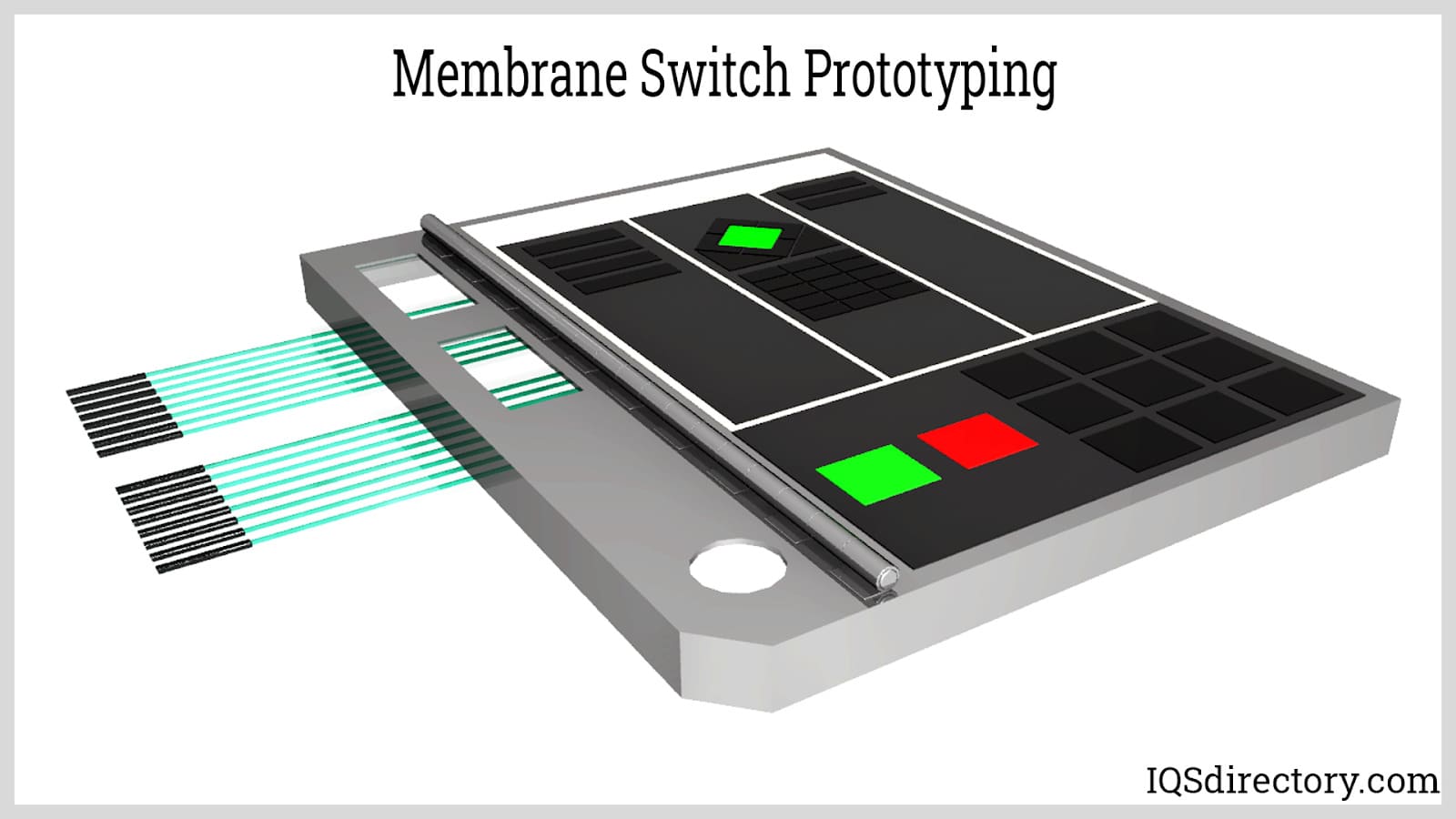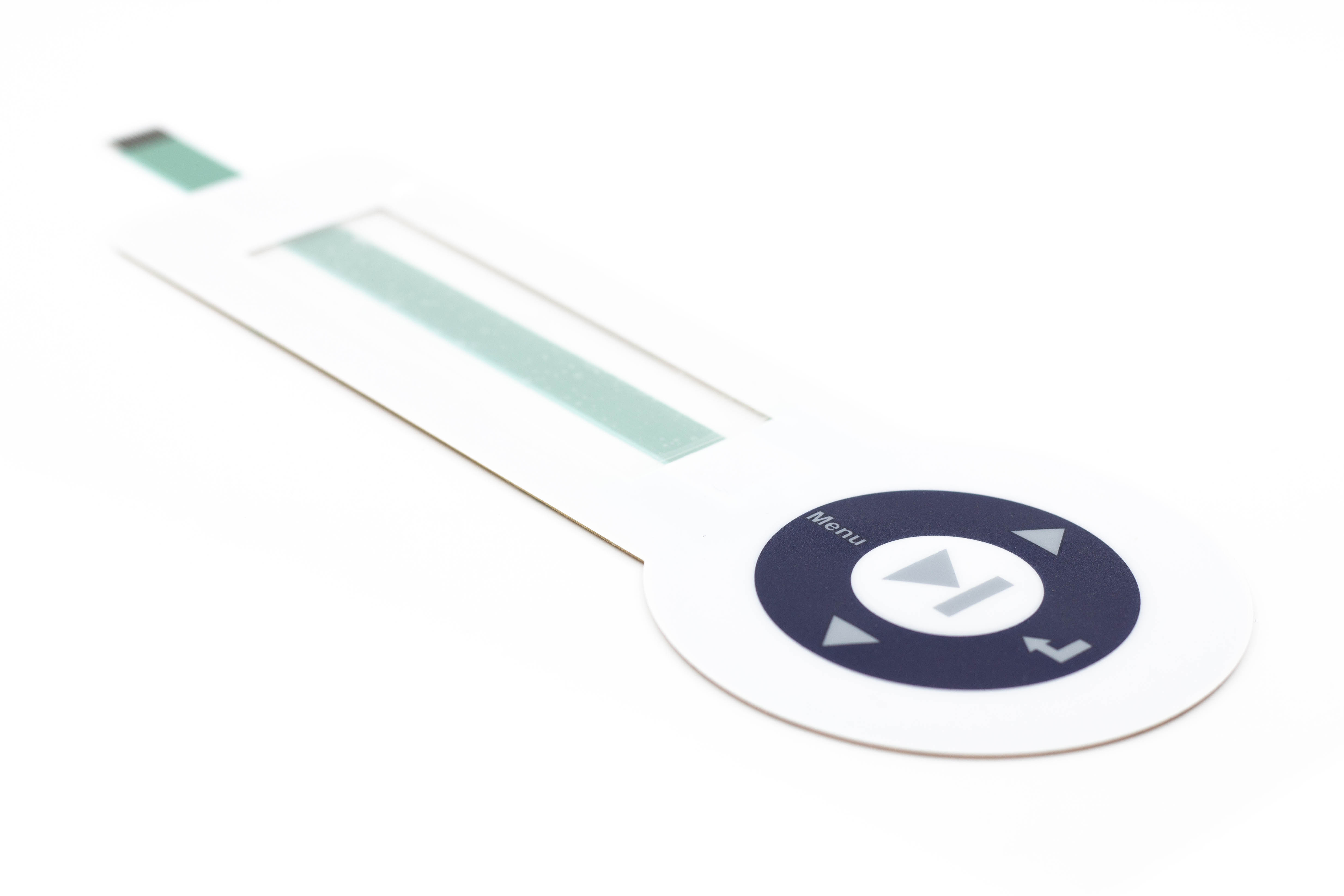The Duty of Membrane Layer Switches in Enhancing Device Functionality and Visual Appeal
Membrane changes represent a significant advancement in individual interface modern technology, flawlessly integrating usability with aesthetic allure. Their layout is not just practical, offering receptive controls in a small form, however likewise customizable, allowing for unique branding and aesthetic interaction. As sectors significantly focus on individual experience, the implications of these attributes extend past mere ease, influencing item style and consumer complete satisfaction. What continues to be to be discovered is just how these elements will certainly advance in reaction to emerging fads and technological developments, shaping the future of human-device interaction.
Understanding Membrane Layer Switch Innovation

The visuals overlay serves as the visible surface, frequently published with icons and tags that guide individual interaction. Under this layer, the spacer acts as a separator, making sure that the conductive layer just makes get in touch with when a switch is pushed. The conductive layer, usually made of a conductive ink or product, finishes the circuit and sends signals to the gadget's electronics.
Sturdiness is a considerable benefit of membrane buttons, as they are resistant to wetness, dirt, and impurities, making them ideal for different settings. In addition, membrane buttons can be customized in regards to shape, dimension, and design, allowing manufacturers to customize user interfaces to certain device demands. This adaptability adds to their prevalent use across markets, from customer electronic devices to medical tools.
Use Benefits of Membrane Buttons
The functionality benefits of membrane buttons appear in their instinctive style and easy to use attributes. These switches facilitate uncomplicated communication by integrating responsive feedback and well-known signs, which boost the individual experience through clear interaction of function (Membrane Switch). The level account of membrane changes allows for very easy integration right into different tools, lessening the learning curve for users unknown with complex controls
In addition, membrane switches are commonly developed with sensitivity in mind, enabling users to engage with controls easily. This characteristic is specifically helpful in environments where quick reactions are essential, such as medical gadgets and commercial equipment. Their resistance to dampness and pollutants additionally guarantees trustworthy operation, promoting customer confidence in diverse settings.
Moreover, membrane switches can be tailored to suit particular applications, accommodating special customer demands and preferences. This adaptability cultivates a feeling of ownership amongst users, as they can engage with controls that really feel tailored to their needs.
Aesthetic Enhancements Through Style
Aesthetic enhancements play a considerable role in the general appeal and performance of devices equipped with membrane switches. These buttons offer functional design opportunities that can be tailored to meet brand name identity and user choices. The capacity to include dynamic colors, customized graphics, and differed textures allows suppliers to produce visually striking interfaces that reverberate with users on a psychological degree.
The versatility of membrane layer button design also facilitates the assimilation of unique forms and layouts, contributing to a structured appearance that boosts the customer experience. This not just makes gadgets a lot more appealing yet also help in instinctive navigation, as customers can conveniently recognize functional areas and controls. In addition, advanced printing technologies make it possible for the recreation of detailed layouts and high-resolution pictures, additionally boosting the aesthetic top quality.
Additionally, the use of backlighting in membrane layer switches can substantially improve visibility and appeal, especially in low-light settings. This mix of aesthetics and capability promotes an engaging user experience, making gadgets not just much more enjoyable to utilize but also much more aligned with contemporary style patterns. Inevitably, visual enhancements with cautious membrane switch layout can change average tools into compelling, user-friendly items.
Applications in Various Industries
In various industries, membrane layer buttons have actually come to be essential elements that improve capability and use across a large range of tools. These cutting-edge buttons find applications in sectors such as medical care, customer electronic devices, auto, and commercial devices.
In the medical care industry, membrane layer switches are generally made use of in medical devices, such as analysis devices and patient monitoring systems, where they supply user-friendly user interfaces that boost user communication while maintaining health. In a similar way, in consumer electronic devices, membrane layer buttons promote straightforward controls in appliances, remotes, and pc gaming gadgets, using seamless procedure and aesthetic allure.

Future Fads in Membrane Layer Switches
Arising patterns in membrane layer buttons are set to change interface across numerous applications, driven by improvements in technology and raising customer demands for performance and layout. One noteworthy pattern is the unification of capacitive touch modern technology, which offers an extra receptive and contemporary user experience compared to standard mechanical buttons (Membrane Switch). This shift not only boosts usability but also enables sleeker gadget aesthetics
Additionally, the combination of customizable graphics and backlighting is coming to be increasingly popular. Makers are leveraging innovative printing methods and LED innovation to produce visually appealing user interfaces that provide to particular user requires while enhancing device visibility in various lighting problems. This personalization cultivates a more powerful emotional link in between users and their devices.

Final Thought
Finally, membrane layer switches significantly enhance both usability and looks in modern-day tools. Their user-friendly layout, receptive controls, and personalized graphics assist in customer communication, specifically in vibrant atmospheres. Furthermore, the incorporation of vivid colors and backlighting not just elevates aesthetic allure but also enhances performance, her explanation allowing for efficient navigating in various lights conditions. As markets remain to develop, the convenience and ingenious possibility of membrane layer buttons will likely additional reading play an increasingly vital role in device layout and customer experience.
Comments on “The Function of a Membrane Switch in Modern Touch Interfaces and Controls”